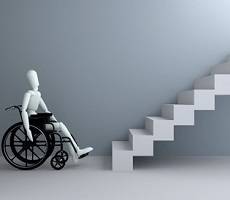September 21, 2016
Innovative and ambitious disabled employees still face discrimination 0
 Disabled employees outperform all other groups in terms of innovation and professional ambition, according to new data from the Chartered Institute of Personnel Development (CIPD) in its paper, Attitudes to Employability and Talent. The report, which explores attitudes towards employability and responsibilities for career development in the UK, includes the attributes associated with employment and career success. Individuals with disabilities ranked more highly than any other group in the categories of ‘Brings new and innovative ideas’ and ‘A great desire to develop’. The group also scored particularly highly in the categories of ‘Fits with organisational values’, ‘Good work ethic’, ‘Reliable’, and ‘Positive attitude to work’. However, when quizzed on current approaches to recruiting from diverse workforce groups, only 11 percent of respondents said they actively target individuals with disabilities during recruitment. This is despite the fact that over half (51 percent) currently employ professionals with physical and mental health conditions. (more…)
Disabled employees outperform all other groups in terms of innovation and professional ambition, according to new data from the Chartered Institute of Personnel Development (CIPD) in its paper, Attitudes to Employability and Talent. The report, which explores attitudes towards employability and responsibilities for career development in the UK, includes the attributes associated with employment and career success. Individuals with disabilities ranked more highly than any other group in the categories of ‘Brings new and innovative ideas’ and ‘A great desire to develop’. The group also scored particularly highly in the categories of ‘Fits with organisational values’, ‘Good work ethic’, ‘Reliable’, and ‘Positive attitude to work’. However, when quizzed on current approaches to recruiting from diverse workforce groups, only 11 percent of respondents said they actively target individuals with disabilities during recruitment. This is despite the fact that over half (51 percent) currently employ professionals with physical and mental health conditions. (more…)






























May 18, 2016
Younger working mothers bear the brunt of maternity discrimination 0
by Sara Bean • Comment, Flexible working, Legal news, News, Workplace
(more…)